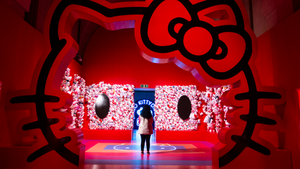Loyalty Programs Lose Traction with Consumers
There is a growing disinterest among the middle class toward existing consumer loyalty programs, according to research by the Collinson Group.
April 6, 2018

About 35 percent of people say they cannot be bothered with loyalty programs.
 There is a growing disinterest among the middle class toward existing consumer loyalty programs, according to research by the Collinson Group.
There is a growing disinterest among the middle class toward existing consumer loyalty programs, according to research by the Collinson Group.
The Collinson Group’s survey also found that consumers are less likely to recommend a brand to friends or are less likely to refrain from switching to a competitor as a result of current loyalty programs, compared to two years ago. However, program membership is also lower across eight industries including retail, grocery, hospitality and airlines than in 2014.
The study surveyed 6,125 people from the top 10-15 percent of earners in Australia, Brazil, China, France, Hong Kong, India, Singapore, the U.K., the U.S. and the United Arab Emirates. According to the Collinson Group, this group of middle class consumers is prized by global brands due to their higher spending potential, as well as the influence they have other consumers.
“Our research is a wake-up call to brands in every industry where points-based programs offering generic rewards are still being used. Given the importance of affluent middle class consumers on the fortunes of companies, it is imperative that low-performing initiatives are aborted, and that brands rethink how they recognize, engage and reward customers,” says Christopher Evans, director, Collinson Group. “Global consumers now expect real-time interactions with brands on a platform of their choosing. These interactions should be highly personalized and relevant, and as ever, consumers expect to be rewarded for their continued custom. Brands that are not innovating and addressing evolving customer expectation will simply be left behind.”
Additionally, the Collinson Group identified four global groups of people who share common traits that span across age, gender and international boundaries and found that one common trait among all groups in this year’s research was a high expectation of brands.
According to the study, nearly 69 percent expect high quality, consistent customer service however they interact with the brand. The same percentage also expects brands to be easy to do business with, and 67 percent value the flexibility to choose the rewards and benefits they are offered.
When asked what would encourage more frequent spending on their preferred brands, approximately half of respondents wanted a loyalty program where it was easy to earn, redeem and adjust to their personal preferences. However, 35 percent (twice as many as 2014 research) said they could not be bothered with loyalty programs.
Other highlights of those surveyed include:
64 percent are members of supermarket loyalty programs, down from 70 percent.
55 percent have frequent flyer memberships, down from 65 percent.
48 percent participate in credit card programs, down from 63 percent.
“We continue to see the potential of loyalty initiatives to positively influence consumer behavior, as despite lower membership numbers, three quarters of programs across eight industries still encourage higher spending,” says Evans. “There is an appetite for loyalty and customer engagement initiatives, but consumers are turning their backs on programs they do not value. The affluent middle class value spending time with and providing for their families, as well as saving for the future. These rank far higher than driving a good car or going on a luxury holiday, and brands should seek to tap into what motivates their customers, instead of reach for discounts or material goods as rewards.”
You May Also Like






